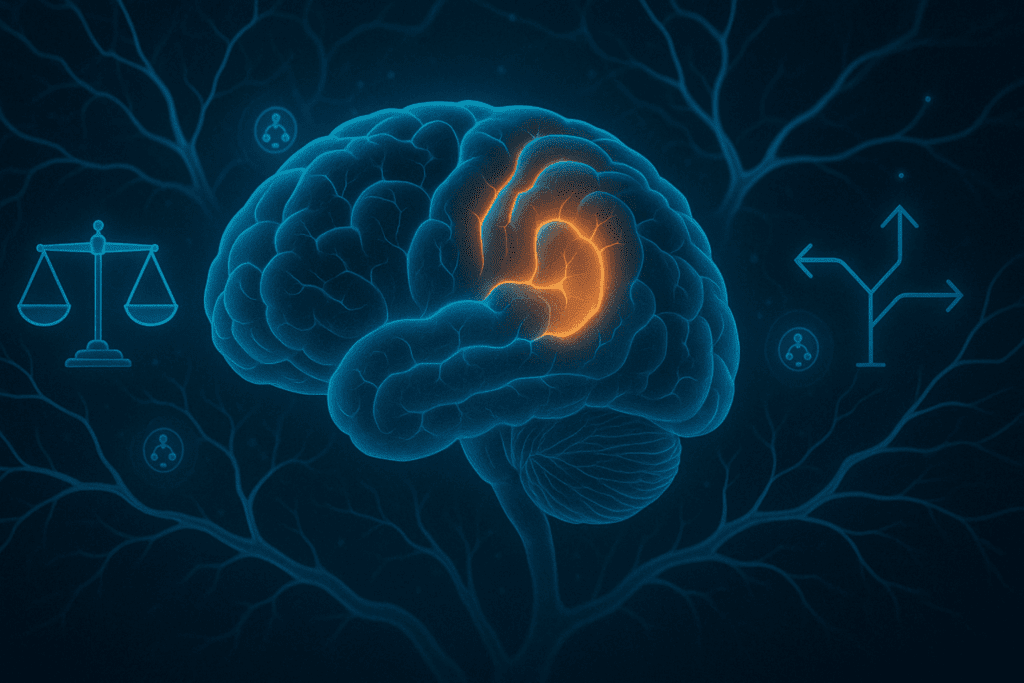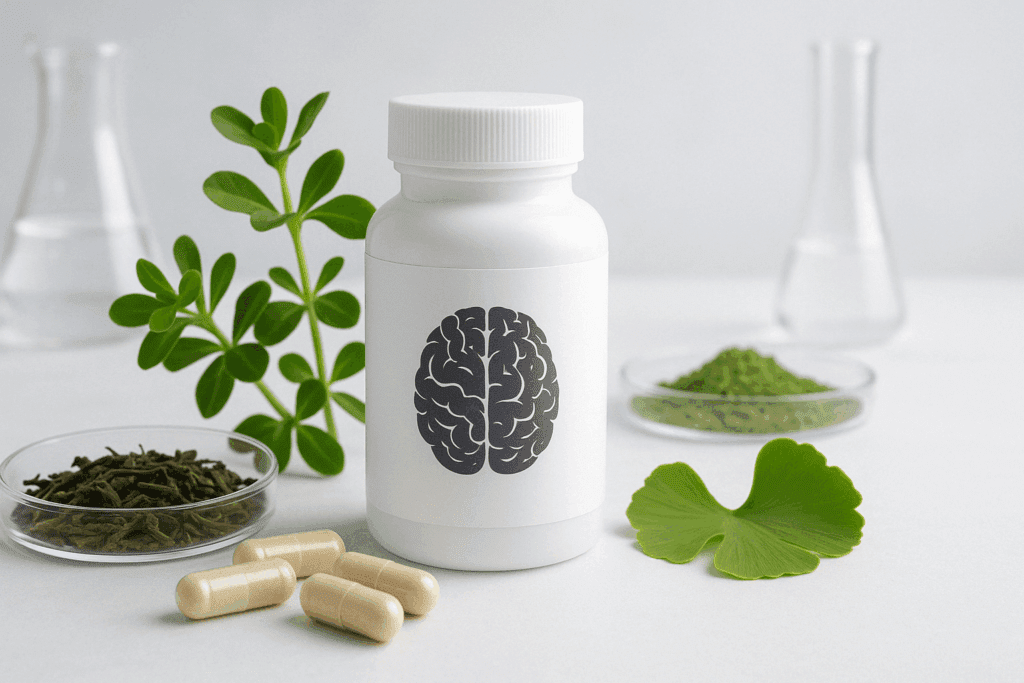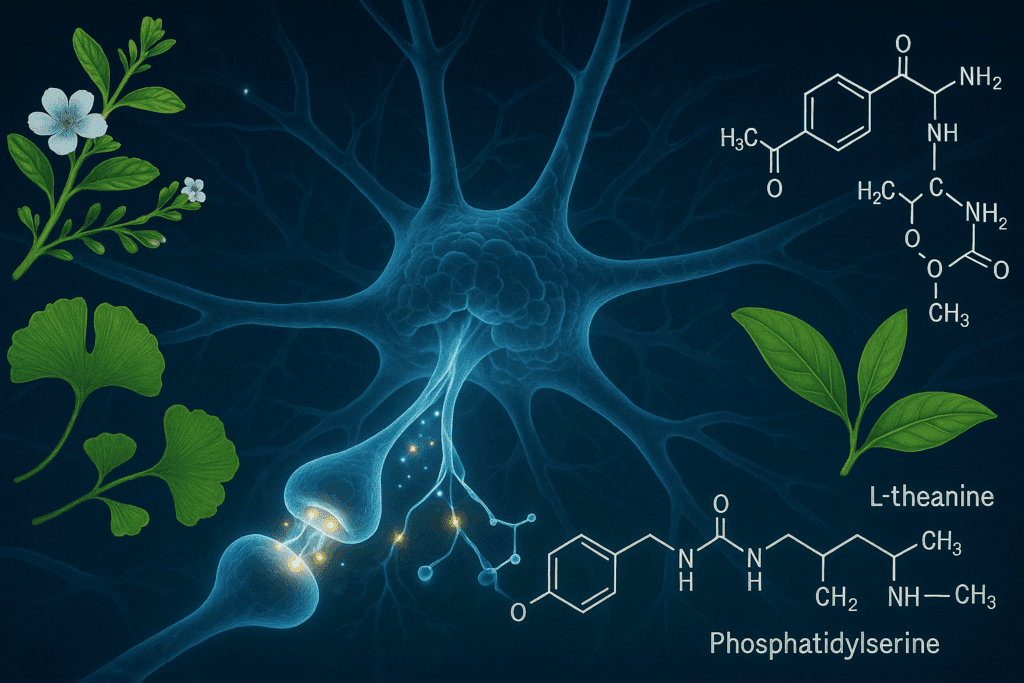Decision-making is one of the most complex cognitive processes we rely on every day. Whether it’s weighing professional opportunities, evaluating personal relationships, or navigating financial investments, the ability to make sound choices depends on a combination of focus, memory, processing speed, and emotional regulation. In the pursuit of sharper mental clarity and quicker cognitive reflexes, many people are turning to brain supplements designed to enhance these functions. Among them, the Cerebra brain supplement has emerged as a popular option, promoted for its potential to support brain health and improve mental performance.
You may also like: How to Choose the Best Brain Supplements for Adults: Science-Backed Ingredients That Support Focus, Memory, and Mental Clarity
But can a supplement like Cerebra truly influence decision-making in any meaningful way? Or are such claims simply riding the coattails of the modern nootropic trend? To answer these questions, we must look past the marketing and examine the scientific validity behind the ingredients, the neurological mechanisms they target, and the realistic benefits users might expect. This article takes a deep dive into what the current evidence says about the Cerebra brain health supplement, how it may—or may not—support cognitive function, and whether its effects extend meaningfully into decision-making optimization.

Understanding Decision-Making as a Cognitive Process
Before evaluating any supplement’s influence on decision-making, it’s crucial to understand what the process entails from a neurological standpoint. Decision-making is not a singular action but a dynamic integration of memory retrieval, attention filtering, emotional modulation, and executive control. The prefrontal cortex plays a central role, functioning as the brain’s command center for logic, goal-setting, and behavior regulation. Neurotransmitters like dopamine and acetylcholine are equally critical, acting as the biochemical signals that guide motivation, learning, and cognitive flexibility.
When these systems are in balance, we’re better equipped to evaluate risks, predict outcomes, and resist impulsive choices. But factors like stress, poor sleep, inflammation, and age-related decline can disrupt this balance, leading to foggy thinking, hesitation, or poor judgment. This has led to growing interest in ways to support brain health holistically—including through supplementation with compounds that target these key areas of cognitive performance.
What Is the Cerebra Brain Supplement and What Does It Claim to Do?
The Cerebra brain supplement is marketed as a nootropic formula designed to enhance mental clarity, improve focus, and support long-term brain health. While formulations may vary slightly depending on the version or retailer, Cerebra brain pills typically contain a combination of vitamins, amino acids, adaptogens, and herbal extracts. Common ingredients found in the Cerebra supplement include bacopa monnieri, ginkgo biloba, phosphatidylserine, L-theanine, and B vitamins—all of which are frequently studied for their potential roles in cognitive function.
Some versions of the Cerebra brain health supplement also contain acetyl-L-carnitine (ALCAR), a compound known to support mitochondrial function and potentially reduce mental fatigue. Together, these ingredients are said to promote better neurotransmitter balance, improve memory recall, and enhance processing speed. The question, however, is not just whether these ingredients support general cognition, but whether they specifically improve the mental faculties involved in decision-making.

How Cerebra Ingredients May Influence Brain Chemistry and Cognition
To determine whether the Cerebra supplement has real-world cognitive effects, we need to evaluate how its ingredients work within the brain. Bacopa monnieri, for example, has long been used in Ayurvedic medicine and is supported by several randomized controlled trials suggesting its ability to improve memory acquisition and reduce anxiety. This is significant, as reduced anxiety and increased memory recall are both essential for effective decision-making.
Ginkgo biloba, another key component of Cerebra brain pills, has demonstrated mixed results in clinical research but is often associated with increased cerebral blood flow. This could, in theory, help support focus and working memory by improving nutrient and oxygen delivery to key brain regions. Phosphatidylserine, a phospholipid found in high concentrations in neuronal membranes, plays a role in cellular communication and may help preserve memory in older adults experiencing cognitive decline.
L-theanine, primarily found in green tea, is known for promoting alpha brainwave activity, a state associated with calm but alert focus. Its potential to reduce stress without sedation may improve one’s ability to weigh decisions calmly rather than impulsively. In combination, these ingredients suggest that the Cerebra brain health supplement could plausibly support several facets of cognition that contribute to better decision-making, though the quality and dosage of these components remain essential factors.
Scientific Evidence and Clinical Studies: What the Research Really Shows
Despite the promising mechanisms behind individual ingredients, few studies have directly assessed the effects of Cerebra brain pills as a proprietary blend. This is an important distinction. While numerous clinical trials have demonstrated benefits for specific compounds like bacopa or L-theanine, these studies typically involve isolated ingredients at clinically validated doses—not necessarily the exact formulation or concentration found in Cerebra supplements.
That said, it’s still worth exploring what the scientific literature says about these ingredients independently. For instance, a meta-analysis published in Psychopharmacology found that bacopa monnieri improved memory performance in healthy adults, particularly in the domains of delayed recall and information processing. Similarly, research published in Nutritional Neuroscience showed that phosphatidylserine may improve attention and memory in elderly individuals, potentially delaying the progression of cognitive impairment.
Ginkgo biloba has a more mixed record. Some studies suggest modest cognitive benefits in older adults, while others show minimal or no improvement compared to placebo. Importantly, the timing, dosage, and baseline health status of participants greatly influence these outcomes. Moreover, few studies explicitly link ginkgo or other nootropics to improved decision-making per se, highlighting the need for more targeted research in this area.
The Placebo Effect and the Psychology of Cognitive Enhancement
One of the most fascinating aspects of supplements like the Cerebra brain supplement is how strongly user perception can influence actual cognitive performance. Studies have consistently shown that individuals who believe they are taking a cognitive enhancer often perform better on memory and attention tasks—even when the supplement is a placebo. This placebo response is not merely psychological but can have real physiological underpinnings, affecting dopamine release and prefrontal activity.
For users who take Cerebra brain pills as part of a broader routine—alongside better sleep, hydration, exercise, and mindfulness—the perceived cognitive boost might feel even stronger, further reinforcing its effects. This doesn’t mean the supplement lacks value, but rather that expectation plays a significant role in how nootropics are experienced. When evaluating any supplement, including the Cerebra brain health supplement, it’s important to recognize that the psychological context matters almost as much as the biochemical one.
Limitations, Side Effects, and Safety Considerations
Like any supplement, the Cerebra brain supplement is not without its limitations. First and foremost, the lack of large-scale, peer-reviewed clinical trials on the complete formulation limits our ability to draw definitive conclusions. Additionally, ingredient quality can vary between batches, and not all formulations are third-party tested for purity or potency. This can make it difficult for consumers to know exactly what they are getting in each capsule.
Potential side effects are generally mild but may include digestive discomfort, headaches, or interactions with medications—particularly in individuals taking blood thinners, antidepressants, or anticonvulsants. Ginkgo biloba, for example, has been associated with increased bleeding risk in rare cases. Users should always consult a healthcare provider before starting a new supplement regimen, especially if they have underlying medical conditions or are currently taking prescription medications.
While the Cerebra brain health supplement is often marketed as natural and non-addictive, that doesn’t automatically make it suitable for everyone. Cognitive enhancement should be approached with the same level of caution and critical thinking that good decision-making itself requires. Relying solely on a supplement without addressing lifestyle factors is unlikely to yield sustained or significant cognitive improvements.

Practical Insights: When and How to Use Cerebra for Cognitive Support
Assuming the Cerebra brain supplement is used responsibly and with proper medical guidance, it may offer noticeable benefits for individuals experiencing occasional brain fog, mental fatigue, or lapses in concentration. These short-term improvements can indirectly support better decision-making by increasing mental clarity and reducing distractibility during cognitively demanding tasks.
However, timing and consistency matter. Most nootropics, including those found in Cerebra brain pills, tend to work best when taken consistently over several weeks. Acute effects—such as improved focus or reduced anxiety—may occur within an hour of taking L-theanine or ginkgo, but memory enhancement from bacopa or phosphatidylserine typically requires daily use over a month or more.
Stacking Cerebra with other healthy habits, such as intermittent fasting, aerobic exercise, and strategic cognitive training, may further amplify its effects. In this sense, the supplement can be part of a broader toolkit for decision-making optimization rather than a standalone solution. It’s also essential to monitor your individual response, as cognitive effects can vary based on genetics, sleep patterns, stress levels, and baseline nutritional status.
Consumer Experiences and User Reviews: What People Are Saying About Cerebra
While anecdotal reviews are not a substitute for scientific validation, they can provide useful insights into how real users perceive the Cerebra brain supplement. Many users report increased focus, better memory recall, and improved ability to concentrate on tasks for longer periods. Some describe feeling more mentally “sharp” or “on,” while others cite reduced mental fatigue after long work sessions.
However, not all reviews are glowing. A common complaint among dissatisfied users is the lack of noticeable results, especially when expectations were high. Others mention minor side effects such as jitters or upset stomach—symptoms that may be related to individual sensitivity or interactions with other substances like caffeine. As with most nootropics, variability in response is to be expected, and what works well for one person may not work at all for another.
Still, the positive reviews suggest that the Cerebra brain health supplement may provide cognitive support for a significant subset of users—particularly those seeking a mental edge in decision-making contexts that require prolonged focus or quick thinking. Whether these effects are due to the ingredients themselves, a placebo response, or a combination of both, they still represent a meaningful benefit for those who experience them.
The Future of Cognitive Enhancement: Where Cerebra Fits In
As the market for brain supplements continues to grow, so too does the demand for more targeted, scientifically validated interventions. Researchers are beginning to explore the use of personalized nootropic stacks, combining genetic testing with supplement protocols tailored to individual neurochemistry. In this evolving landscape, products like the Cerebra brain supplement represent a bridge between general wellness and the emerging frontier of precision cognitive enhancement.
Cerebra’s current formulation may appeal most to professionals, students, and older adults who want to maintain or sharpen cognitive function without turning to prescription stimulants. Its ingredients, while not revolutionary on their own, represent a well-rounded blend of compounds that have been studied for their cognitive benefits. With more rigorous testing and transparent labeling, supplements like Cerebra could become reliable tools in supporting everyday decision-making for a broad population.

Standalone FAQ: Deep Insights Into the Cerebra Supplement and Brain Health Optimization
1. How might the cerebra brain supplement support long-term cognitive resilience as we age?
While many brain pills promise immediate clarity or focus, long-term cognitive resilience requires deeper cellular support. The cerebra brain supplement includes compounds that may assist in neurogenesis—the creation of new neurons—and in preserving synaptic plasticity, which is crucial for learning and memory as we age. Some emerging research also points to its potential antioxidant action, helping to neutralize free radicals that contribute to cognitive decline. Over time, maintaining a consistent regimen of cerebra brain pills could support the brain’s structural integrity, particularly in areas like the hippocampus, which governs memory and emotional regulation. Users over 50 often report more consistent mental performance, not just momentary boosts, which suggests its effects may compound with regular use.
2. Can cerebra brain pills be beneficial for high-performance professionals under chronic mental strain?
Yes, individuals facing sustained cognitive demand—like executives, software engineers, and surgeons—often experience mental fatigue and decision fatigue. The cerebra supplement may assist by supporting neurotransmitter balance, particularly acetylcholine and dopamine, which are tied to executive function, focus, and motivation. In high-pressure environments, the ability to maintain sustained attention and cognitive flexibility is key. Anecdotally, some professionals report improved task-switching ability and less mental “drain” after extended problem-solving sessions when using the cerebra brain supplement. Additionally, its adaptogenic components may help the brain modulate cortisol response, indirectly protecting against burnout.
3. How does the cerebra supplement compare to prescription stimulants for cognitive enhancement?
Unlike prescription stimulants like Adderall, which act rapidly by flooding the brain with dopamine and norepinephrine, cerebra brain pills work more gradually and holistically. They aim to support foundational brain health rather than force a neurotransmitter spike. This means fewer crashes, less jitteriness, and less potential for dependence. Users looking for sustainable cognitive performance without pharmaceutical side effects may prefer the cerebra brain health supplement as a safer, natural alternative. Its composition often includes amino acid precursors, herbal neuroprotectants, and metabolic co-factors that encourage steady cognitive improvement over time.
4. Are there lifestyle practices that amplify the effects of cerebra brain health supplements?
Absolutely—supplements work best when paired with brain-supportive behaviors. Activities like intermittent fasting, cold exposure, and deep sleep optimization can all enhance the bioavailability and efficacy of ingredients in cerebra brain pills. Moreover, combining this supplement with high-flavonoid foods (like blueberries or dark chocolate) may further enhance neurovascular function, improving delivery of nutrients to the brain. Practicing mindfulness or breathwork also appears to prime the parasympathetic nervous system, potentially enhancing the calming, clarity-promoting effects of cerebra brain supplements. It’s this synergy between supplementation and lifestyle that produces the most robust cognitive benefits.

5. Could cerebra brain supplements support individuals recovering from mental burnout or brain fog?
Brain fog—often caused by inflammation, poor sleep, or hormonal dysregulation—can impair daily functioning and quality of life. The cerebra supplement may help by supporting mitochondrial efficiency and reducing neuroinflammatory markers, both of which are implicated in mental fatigue. People recovering from prolonged stress, illness, or overwork often find that cerebra brain pills gently restore clarity without overstimulation. It’s important, however, to also address root causes such as sleep quality, micronutrient deficiencies, or overexposure to digital screens. As part of a comprehensive recovery plan, the cerebra brain health supplement can be a useful tool in regaining mental sharpness and vitality.
6. What should users know about cycling cerebra brain pills for maximum long-term benefit?
Though the cerebra supplement is generally safe for daily use, cycling can help maintain sensitivity to its active compounds. One effective approach is using it for five days on, two days off, or taking a full week off every six to eight weeks. This practice may prevent tolerance buildup and encourage the brain to sustain endogenous production of key neurotransmitters. Cycling also gives users a chance to assess baseline cognitive performance, helping them better understand how cerebra brain supplements impact their focus and memory. Regular breaks also allow the body’s detoxification systems to clear any residual compounds, promoting long-term safety.
7. How might cerebra brain health supplements interact with different chronotypes or sleep schedules?
The effectiveness of brain supplements like cerebra may vary depending on one’s chronotype—whether you’re a morning lark, night owl, or somewhere in between. Morning types might benefit most when taking cerebra brain pills shortly after waking, aligning with their natural cortisol peak. Night owls, on the other hand, may find mid-morning or early afternoon dosing more effective, as their alertness curve ramps up later in the day. Moreover, if sleep quality is inconsistent, ingredients in the cerebra supplement that support GABA or circadian rhythms may help balance mood and improve sleep latency. Understanding one’s biological rhythm can help personalize usage for optimal brain function.
8. Are there any emerging ingredients or future versions of cerebra brain pills that could revolutionize cognitive supplementation?
Innovations in nootropic science are advancing rapidly. Future versions of the cerebra brain supplement may include compounds like synthetic neuropeptides, epigenetic modulators, or next-gen adaptogens sourced from rare botanicals. One promising area of research involves compounds that influence BDNF (brain-derived neurotrophic factor) more directly, potentially amplifying neural regeneration. Another involves gut-brain axis support, where future cerebra brain pills may include psychobiotics—probiotics that directly influence mood and cognition. These developments could make future cerebra supplements even more precise in targeting specific cognitive domains like memory, creativity, or emotional regulation.
9. How do cerebra supplements affect social cognition and emotional intelligence in high-stress environments?
While most people associate nootropics with logic and memory, emotional intelligence is just as crucial—especially in leadership, negotiation, or teaching roles. Certain ingredients in cerebra brain supplements may influence serotonin and oxytocin pathways, subtly enhancing social interpretation and emotional regulation. This can translate to greater empathy, improved listening skills, and better decision-making under pressure. In high-stakes environments like corporate boardrooms or emergency response teams, this emotional clarity may enhance team dynamics and conflict resolution. Though still under-researched, user testimonials often describe a smoother social experience when using cerebra brain pills regularly.
10. Can the cerebra supplement be useful for creative professionals and divergent thinkers?
Creativity isn’t just about generating new ideas—it’s about mental fluidity, pattern recognition, and associative thinking. Ingredients in the cerebra brain health supplement may support these processes by boosting cerebral blood flow and balancing excitatory and inhibitory neurotransmitters. For writers, musicians, designers, or entrepreneurs, cerebra brain pills may promote that elusive “flow state” where insights arise effortlessly. Additionally, the supplement may help reduce internal distractions, allowing for deeper immersion in creative tasks. By supporting both hemispheric integration and frontal-lobe activation, the cerebra supplement aligns well with the cognitive demands of artistic and innovative pursuits.

Conclusion: Can the Cerebra Brain Health Supplement Really Enhance Decision-Making?
In the end, the answer is both nuanced and individualized. The Cerebra brain supplement contains a thoughtful selection of ingredients with known cognitive benefits—ranging from improved memory and attention to enhanced stress resilience and mental clarity. These attributes are essential for sound decision-making, and by supporting them indirectly, Cerebra may help individuals make sharper, more confident choices.
However, the current evidence stops short of definitively proving that Cerebra brain pills directly enhance decision-making as a discrete function. While the supplement may improve several cognitive domains that influence the decision-making process, further research is needed to establish its specific effects on outcomes like risk assessment, judgment accuracy, or emotional regulation under pressure.
For those considering the Cerebra brain health supplement as part of a broader cognitive optimization strategy, it may offer noticeable benefits—especially when combined with lifestyle interventions and used consistently. Like all tools in the cognitive enhancement toolbox, its effectiveness depends on the user’s goals, health status, and commitment to holistic brain health. With realistic expectations and a science-informed approach, Cerebra could become a meaningful ally in the ongoing pursuit of better mental performance and sharper decision-making.
Was this article helpful? Don’t let it stop with you. Share it right now with someone who needs to see it—whether it’s a friend, a colleague, or your whole network. And if staying ahead on this topic matters to you, subscribe to this publication for the most up-to-date information. You’ll get the latest insights delivered straight to you—no searching, no missing out.
Further Reading:
Miracle Pill From Stanford University Medical Laboratory That Completely Cured Erectile Dysfunction


